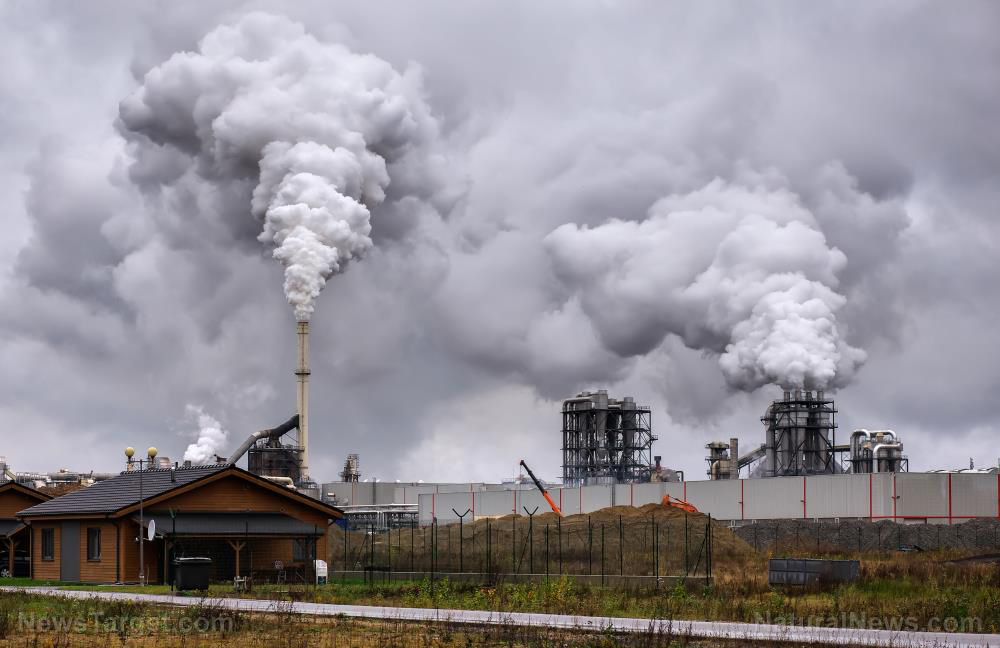Europe in “deindustrialization” spiral due to energy crisis, warns Goldman Sachs
10/10/2022 / By Ethan Huff

Banking behemoth Goldman Sachs is now warning that the European energy crisis will lead to the “deindustrialization of Europe.”
The chemical sector in particular is expected to collapse, resulting in a cascade of financial fallout totaling at least $1.6 trillion dollars, the bank says.
“We … now expect a protracted period (> 2 years) of lower production for European chemicals on the back of the region’s energy crisis,” Goldman says.
“We see up to 40% of Europe’s chemical industry (petrochemicals and basic inorganics) at risk of permanent rationalization unless a sufficient economic assistance package is introduced, or natural gas prices fall to / below c.f70 / MWh.”
Should European energy assets close, there is expected to be a sharp rise in import requirements to meet “an inelastic global supply base and drive inflation over the mid-term,” Goldman added. (Related: Is the war in Ukraine being used as a cover for the collapsing global economy, which was going to happen anyway?)
Will Europe still be considered first world come 2023?
Not just chemicals but also glass, paper, steel, ceramics and cement are also having to be curtailed due to skyrocketing energy prices and increasingly limited energy availability.
Western sanctions against Russia are only hurting the West, it turns out. And Europe’s obedience to U.S.-led NATO is rapidly becoming the continent’s undoing as a first world region of the world.
By next spring, Europe will probably look a whole lot more like the third world if Goldman’s predictions end up panning out as expected.
“We find €1.6tn sales, 5.1% European workforce (c.11mn jobs) and 7.9% of European IP exposed to deindustrialization risks,” the company said.
Granted, Goldman has not always been accurate in its predictions. In 2019, for instance, the banking kingpin predicted that all cryptocurrencies, including Bitcoin, are “going to zero.”
Since the time of that report, cryptos skyrocketed, then retreated some. They are still almost all above the prices they were at in 2019 when Goldman made that failed prediction.
In this case, though, Europe is on a downtrend economically speaking. The energy crisis is damaging the European economy, possibly beyond repair.
“This is ugly stuff,” reported Forex Live.
On September 8, Goldman issued a report about the shutdown of the Nord Stream 1 (NS1) pipeline from Russia to Germany, warning that this “threatens to further squeeze the disposable income of Europeans.
Since that time, as we all know, both NS1 and Nord Stream 2 (NS2) are damaged due to alleged sabotage, meaning no more Russian gas will be flowing through these two pipelines any time soon – if ever again.
“This is a very painful process and it’s impacting the European population in many different ways,” said Samantha Dar, a senior energy strategist at Goldman. “Ordinary people haven’t even felt the full brunt of this situation.”
With no more Russian gas in Europe, the chasm between supply and demand continues to widen, which means increasingly higher prices with no end in sight.
With the cold winter season soon on the way, that deficit will only expand even more, creating a serious crisis, the full extent of which is still to be seen.
Since the Ukraine crisis was launched, the 10-year average price of natural gas has increased at least tenfold.
“The depth or severity of this crisis could be defined by the weather over the coming months,” Goldman warns.
“If in the middle of winter, you get a particularly cold spike, this is a situation which creates more panic in the market as you don’t have a lot of time to react to it.”
As the global economy implodes right on schedule, we will keep you informed about the latest at Collapse.news.
Sources for this article include:
Submit a correction >>
Tagged Under:
big government, chaos, Collapse, currency crash, deindustrialization, economic collapse, energy, energy crisis, energy supply, Europe, fossil fuel, fuel supply, gas, Goldman Sachs, government debt, Inflation, market crash, national debt, natural gas, panic, risk, Russia, sanctions
This article may contain statements that reflect the opinion of the author
RECENT NEWS & ARTICLES
COPYRIGHT © 2017 BIG GOVERNMENT NEWS





















